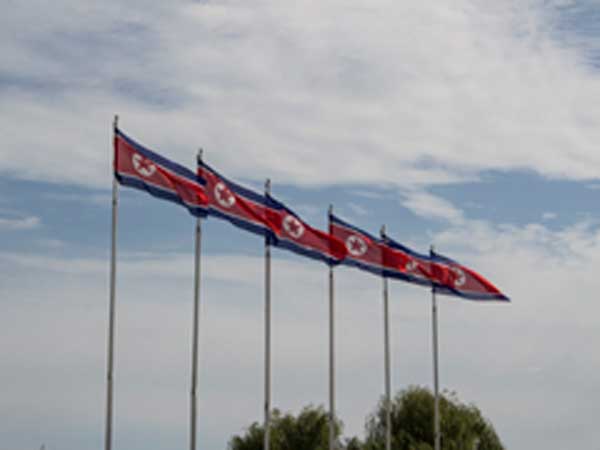The U.S.-North Korea nuclear dilemma hinges on diplomacy or deadlock

[North Korean flag. Photo Credit to Unsplash]
Incumbent U.S. President Donald Trump has renewed his commitment to achieving the "complete denuclearization of North Korea," re-emphasizing commitments made during his first term and the 2018 Singapore Summit with Kim Jong-un.
Yet recent developments suggest that progress may be harder to achieve than before.
The President’s description of North Korea as a "nuclear power" has raised questions about whether his administration is poised to “officially acknowledge North Korea's de facto nuclear status,” despite his expressed willingness to work with Kim Jong-un.
In a clear response, Kim Jong-un has shown no signs of backing down.
The North Korean leader recently inspected a nuclear-material production facility and emphasized the need to strengthen the country’s "nuclear shield," declaring this year as a critical moment for bolstering deterrence.
Nuclear deterrence has long been considered essential by North Korea for countering perceived threats from the U.S. and its allies, leaving little room for compromise.
Furthermore, North Korea’s growing ties with Russia and China have provided Pyongyang with additional support to resist U.S. pressure.
Intelligence reports indicate that North Korean troops have been deployed to support Russia in the Ukraine conflict, signaling a deepening military alliance that could yield economic and technological benefits for Kim’s regime.
This alignment not only fortifies North Korea’s position but complicates the U.S. efforts at diplomatic isolation.
It acts in favor of Kim’s broader goal of fostering a 'new Cold War' dynamic, where North Korea positions itself as a key player in an anti-U.S. bloc alongside Russia and China.
Concurrently, South Korea continues to play a significant role in the region’s geopolitical equation.
The country has reaffirmed its commitment to denuclearization with the U.S. to maintain a united front against Kim’s provocations.
However, recent political unrest following the impeachment of President Yoon Suk-yeol has added instability to an already volatile situation.
Many experts have expressed their skepticism regarding Trump’s strategy to focus on rekindling his personal rapport with Kim Jong-un.
While Trump’s willingness to re-engage might induce cooperative dialogue, analysts argue that North Korea is unlikely to make meaningful concessions without substantial incentives like sanctions relief or recognition as a legitimate nuclear state.
In fact, Pyongyang’s expanded nuclear arsenal and upgraded military capabilities now provide Kim with even more leverage than during previous negotiations.
This dynamic makes it increasingly unlikely for North Korea to agree to completely dismantle its nuclear program, a step President Trump continues to insist on as a precondition for lifting sanctions.
Tensions have only gotten worse with North Korea’s "maximum pressure" policy toward the U.S., which has so far included frequent missile tests and aggressive rhetoric.
Shortly after Trump’s second inauguration, Pyongyang tested cruise missiles capable of carrying nuclear warheads, exhibiting its readiness to escalate if necessary.
Some regional experts speculate that the Trump Administration’s objective of complete denuclearization may eventually pivot towards more modest goals, such as freezing North Korea’s nuclear program or implementing arms control agreements.
The current deadlock leaves little room for optimism regarding progressive measures in the near future.
As the situation stands, both parties remain firmly in their positions: North Korea demands recognition as a nuclear state and an end to what it views as hostile measures from Seoul and Washington, while the United States maintains its stance on full denuclearization.
While Trump’s renewed push for diplomacy offers hope, both nations remain deeply at odds, grappling with conflicting interests and intense geopolitical pressure.

- Kaden Kim / Grade 11
- Seoul Foreign School

![THE HERALD STUDENT REPORTERS [US]](/assets/images/logo_student_us.png)
![THE HERALD STUDENT REPORTERS [Canada]](/assets/images/logo_student_ca.png)
